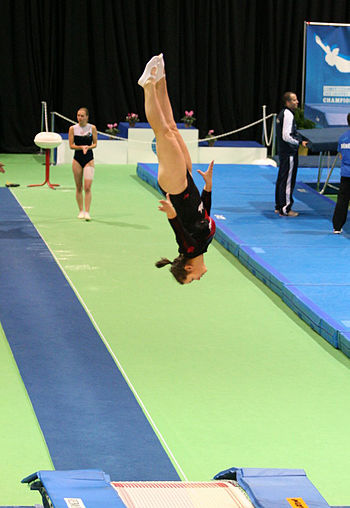
(affiliate link)
Excerpt from the book “The Talent Code” by Daniel Coyle:
“Physical acts are built of chunks. When a gymnast learns a floor routine, he assembles via a series of chunks, which in turn are made up of other chunks…The fluency happens when the gymnast repeats the movements often enough that he knows how to process those chunks as one big chunk.”
Daniel Coyle explains how the ability to perform at very complex levels is acquired slowly by focusing on very small sub-skills first. Once those sub-skills have been mastered, the body is able to do those skills without the conscious mind having to be busy thinking about them. Once you no longer have to think about those smaller skills, your mind can then concentrate on acquiring the next level up in skills. When that next level up is assimilated, your mind is then freed up again to focus on the next level in complexity. At some point in this iteration, the levels of performance become so amazing and effortless, that bystanders can be tricked into thinking that those performers were born with that ability.
So if you want your child to become super-talented, part of the deliberateness in accumulating 10,000 hours of meaningful practice the talent, is in approaching talent with a strategy of acquiring a whole sequence of small sub-skills, rather than trying to train directly on the whole completed skill.
My added interpretation to what Daniel Coyle is reporting in “The Talent Code” book, is that since a talent is built up sub-skill by sub-skill, you can over time gently nudge and guide your child into acquiring a very different type of sub-skills than had been originally intended to add on top of the first ones. This gives your child wiggle room to gradually bend his talent into a new direction without losing advantage of what was already learned. This is important because your child will want to take advantage of changes in technology and changes in the market place that could not be foreseen at the beginning of his ten years of 10,000 hours training.
Maybe for example your child is learning piano, but you realize that your original plans to become a concert pianist are not lucrative enough to support a family. Maybe you come to realize that adding digital marketing skills and formatting his music for YouTube and cell phones will open up different doors for your son to apply the musical abilities he has already acquired. If you want a strategy that adapts a talent to evolving opportunities, then go through my workshop “How to Discover and Develop Your Child’s First 100 Hours of Talent”.

